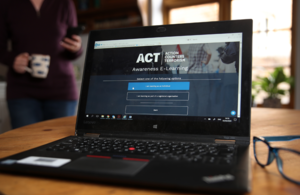CT training at your kitchen table
News story
Tens of thousands of people across the UK have been undertaking counter terrorism training from their kitchen tables during the lockdown.

CT training at your kitchen table
And with lockdown measures set to ease in the coming weeks and more people returning to towns and cities, Counter Terrorism Policing need people to return to being vigilant when out and about.
A police appeal to the public, to take part in the Action Counters Terrorism (ACT) e-Learning course while working at home, has resulted in nearly 70,000 signing up to be ‘CT Citizens’. Overall half a million participants have responded to the call since the course was launched two years ago.
Deputy Assistant Commissioner Lucy D’Orsi, national policing lead for Protective Security said:
It’s an incredible number. We wanted to encourage more people to take the course and become ‘CT citizens’ as it can easily be done when you are working remotely, but the enthusiastic response has been even better than we had hoped.
With everything people have had to cope with over the past couple of months, we are delighted that they want to continue supporting Counter Terrorism Policing and play their part in keeping all communities safe.
And it is so important that they do, because as we start to move towards the easing of lockdown, and the return of busy centres of activity, we need to remind everyone that the threat from terrorism has not gone away.
Having more people with a basic level of awareness, and who know what to do if they see suspicious activity, is a real asset to the police.
The international award winning ACT Awareness e-Learning was developed in partnership with retail giant Marks and Spencer and Highfield Learning.
The interactive course, which is available to companies or private individuals, takes just 45 minutes to complete and can be done all in one go or in short modules.
It explains how to spot the signs of suspicious behaviour and what to do to help yourself, others and the emergency responders if an attack should take place.
To log on and learn, visit https://ct.highfieldelearning.com/
Published 10 June 2020
